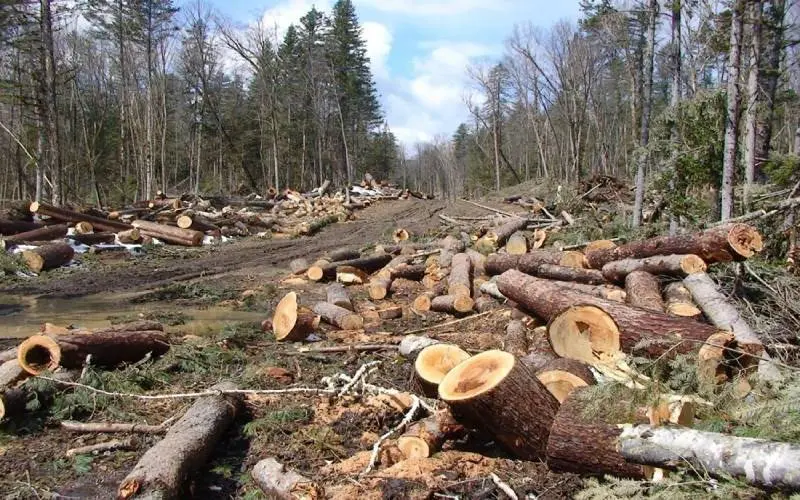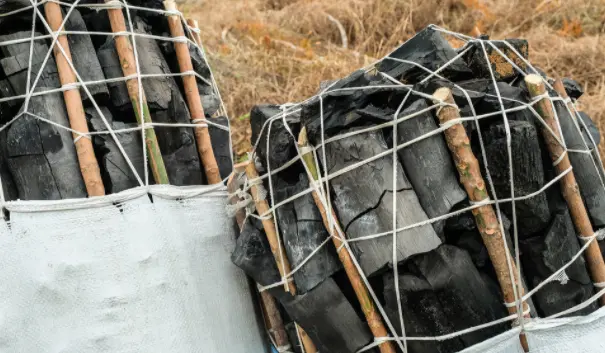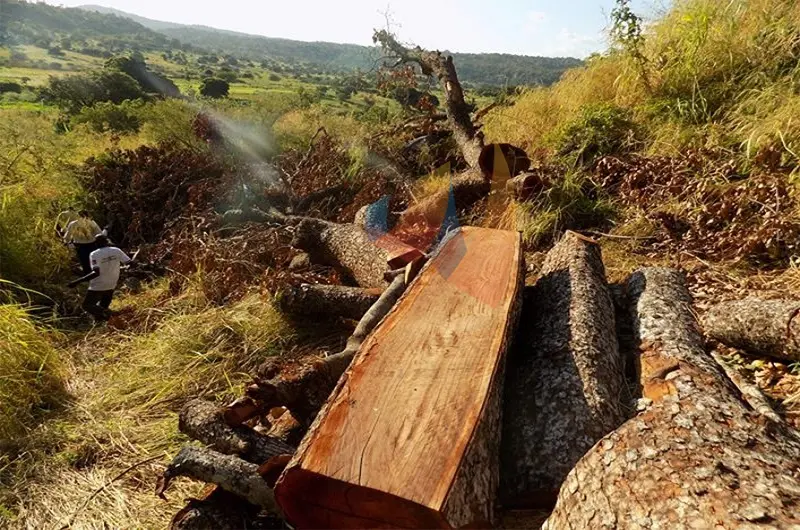
Stakeholders in forestry have raised a red flag over the ‘over exploitation’ of mahogany trees along the border of South Sudan and the Democratic Republic of Congo.
Individuals and some companies—both local and foreign—are involved in illegal logging for their personal benefit.
According to the undersecretary in the Ministry of Environment and Forestry, Joseph Africano Bartel, a majority of the population depends on firewood and charcoal as primary sources of energy, which has put pressure on the forest.

As a nonprofit journalism organization, we depend on your support to fund journalism covering underreported issues around the world. Donate any amount today to become a Pulitzer Center Champion and receive exclusive benefits!
“We have categories of forests; we have the central reserve forest, we have the state and the community forest. Government policy is to have a land cover of about 25 to 30 per cent forest cover,” Bartel said.
Climate change is already impacting lives and livelihoods, especially in the equatorial regions. According to environmental experts, this relatively unmanaged and unsustainable practice could have serious environmental and climate impacts.
James Ndani, the chairperson of the Loggers Association, said there are more than 27 registered local and international companies operating in Gangura Payam in Yambio County, Western Equatoria State and in Batima in the Democratic Republic of the Congo.
Ndani added that some tree species are becoming increasingly rare due to an increased number of loggers.
“We need to know which types of trees we are supposed to cut and which ones are not. Those trees are very important for the people living near the forests. The government needs to take action on this matter because most of our resources have all gone,” he claimed.
Community leaders' concern

John Paspere Kambiri, one of the community leaders and the local chief, said poverty and the lack of basic services contribute to logging.
However, he said the communities have become fed up with the loggers who often fail to fulfill their promises of paying dues in exchange for the trees.
“We only take a certain percentage from the dealers as the community leaders, and it is the owners of the trees who sell to them,” Kambiri said. “We normally sell the trees because of poverty, to pay school fees for our children or medical bills and other essential needs, but now we have stopped selling the trees because they don’t fulfill what we agreed on—they are supposed to pay us or provide us with boreholes; and besides, all the animals in these areas have fled, so we have stopped selling the trees.”
John Barak, one of the community elders in the Batima area, said if measures are not put in place to curb the rampant exploitation of the forests, the natural resources will vanish, causing a great loss to the two countries.
“We have lost most of our valuable species,” Barak said.
“The government needs to initiate some mechanisms to monitor the activities of the loggers. We don’t have hospitals, clean water, no schools; the roads are very poor. So, we shall not allow them again to enter into our forests and cause severe damage.”
The South Sudan Ministry of Environment and Forestry has announced several policies encouraging reforestation, where cutting down one tree would require planting more trees, but such a policy has never been effective or respected by the loggers.
Mahogany is used mostly for building materials, such as furniture. It is widely exported to European and Asian countries, as well as neighbouring countries such as Uganda, Kenya, and Tanzania.
According to Forestry England national statistics, a cubic meter of matured wood can be worth more than $75.32 in the international markets.

Illegal operations
According to Joseph Ariminia Abiambu, the director of forestry in the State Ministry of Forestry and Agriculture, most companies are not registered and they are operating illegally. He said they need to be identified and investigated, he said.
‘‘The registered companies are very few, some come and go deep into the forest without our notice and without legal documents,” he said. “To transport those trees such as Avazilia, these are not allowed. We are blaming the legislature; technically we are not allowing them, but they can’t be arrested because they have connections with powerful individuals in the government.”
Ariminia said it is advisable to the loggers to seek prior approval letters before entering into the forest.
“We want afforestation [where] when you cut you need to replace. There is too much felling of trees than afforestation; nobody is thinking about replacing them; no planting is going on; we need to sensitize the communities about the environmental deterioration,” he said.
With the current economic situation, the price of mahogany products is high due to high taxes, hiked demand, and poor road conditions for transporting the products to the market.









